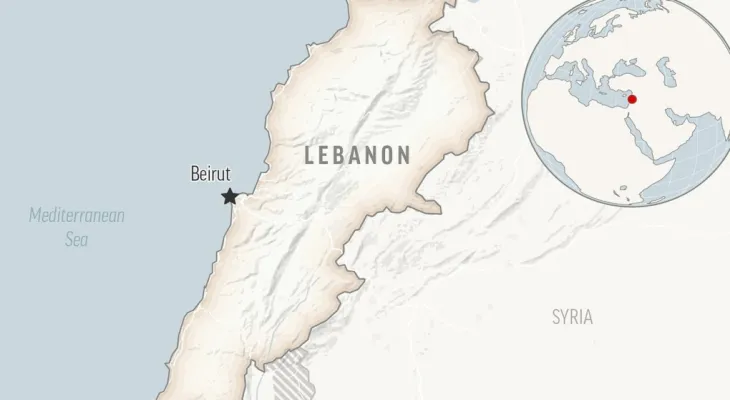Search here
Newspaper
Search here

Arab Canada News
News

Published: July 4, 2024
The Lebanese Hezbollah group stated that it launched more than 200 rockets at several military bases in Israel in response to an airstrike that resulted in the death of one of its senior leaders.
The attack carried out by the Iran-backed militant group on Thursday was one of the largest assaults in the ongoing conflict along the Lebanese-Israeli border, with tensions escalating in recent weeks.
The Israeli army stated that "many suspicious rockets and aerial targets" entered its territory from Lebanon, and reported that many of them were intercepted. There were no immediate reports of casualties.
It added that "about 160 'rockets' were launched towards the occupied Golan Heights and more than 15 drones into Israeli territory, but some were intercepted."
Israel responded to the Hezbollah attack by striking various towns in southern Lebanon, according to Lebanon's National News Agency, which reported that an Israeli drone strike on the border town of al-Houla resulted in at least one death. Meanwhile, Israeli aircraft broke the sound barrier over the Lebanese capital and other areas in the country.
Israel acknowledged on Wednesday that it killed Mohammed Naima Nasser, who was heading one of Hezbollah's three regional units in southern Lebanon, the previous day.
Hours after his killing, Hezbollah launched dozens of Katyusha rockets and heavy warhead Falak missiles at northern Israel and the occupied Golan Heights. More rockets were fired on Thursday, and they also claimed to have sent explosive drones to several bases.
Nasser was of significant importance to Hezbollah, which stated that he participated in battles in Syria and Iraq from 2011 to 2016 and fought in the group’s last war with Israel in 2006. Two other senior Hezbollah leaders were also killed.
The United States and France continue to make efforts to prevent the skirmishes from escalating into a full-scale war, which they fear could spread throughout the region. Washington, in its shuttle diplomacy efforts, initially hoped to achieve calm along the Lebanese-Israeli border in an agreement unrelated to the war in Gaza; however, the United States, which has urged Hamas to accept the ceasefire proposal put forward by President Joe Biden, believes that ending the war in Gaza would also lead to calm in Lebanon and northern Israel.
The relatively low-level conflict erupted shortly after the war in Gaza began. Hezbollah claims it is striking Israel in solidarity with Hamas, which ignited the war in Gaza with its attack on southern Israel on October 7. The movement's leadership says it will halt its attacks once a ceasefire in Gaza is reached, and that although it does not want war, it is prepared for it.
Meanwhile, Israeli officials say they may decide to wage war in Lebanon if efforts to reach a diplomatic solution fail.
Hezbollah’s retaliation comes a day after a senior advisor to President Joe Biden, Amos Hochstein, met with President Emmanuel Macron’s envoy to Lebanon, Jean-Yves Le Drian, in Paris.
The fighting has led to the displacement of tens of thousands of people on both sides of the border. In northern Israel, 16 soldiers and 11 civilians were killed. In Lebanon, more than 450 people were killed — mostly fighters, but also dozens of civilians.
Israel considers Hezbollah to be its largest direct threat, estimating that it has an arsenal of 150,000 rockets and missiles, including precision-guided missiles.
In 2006, Israel and Hezbollah fought a month-long war that ended in a stalemate.
Comments